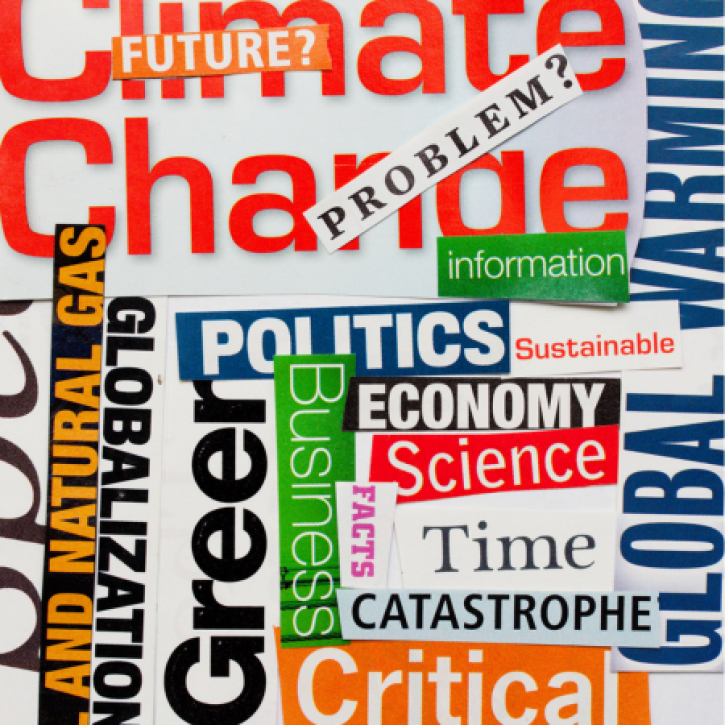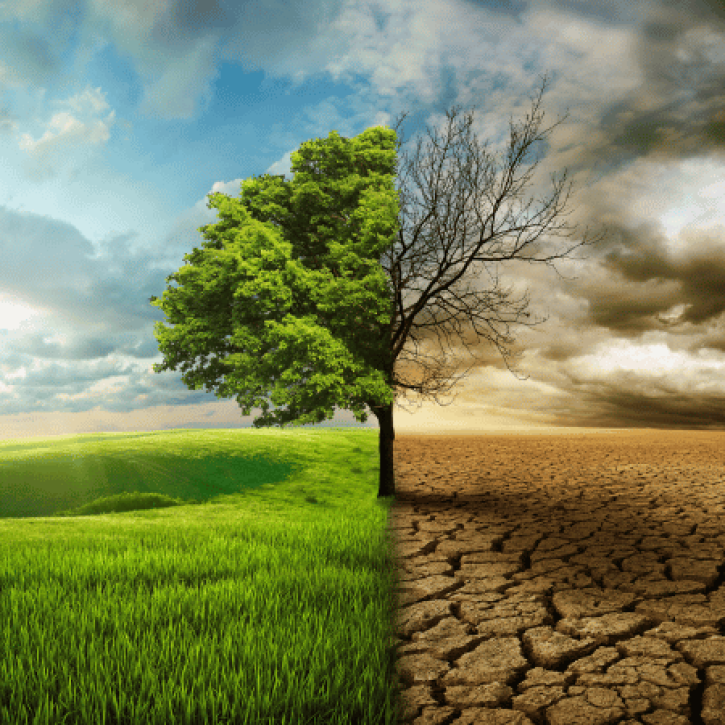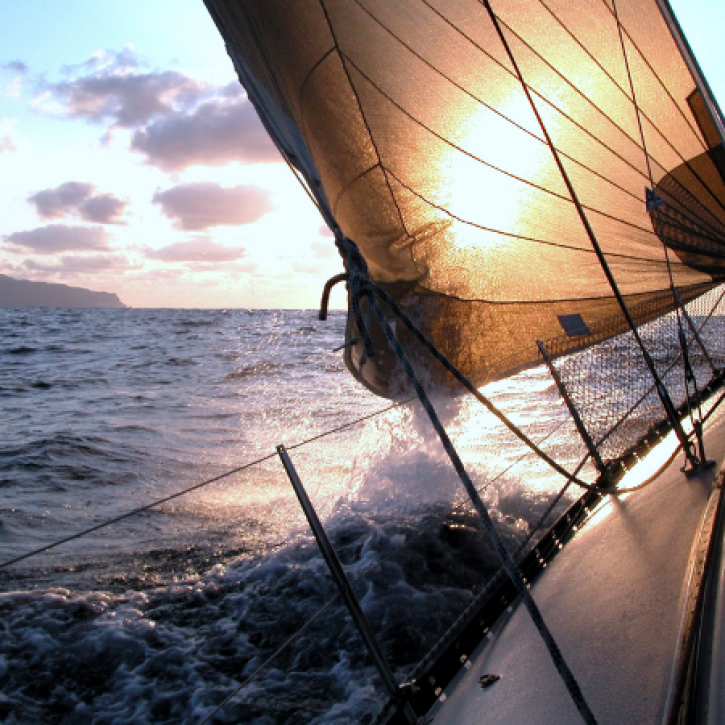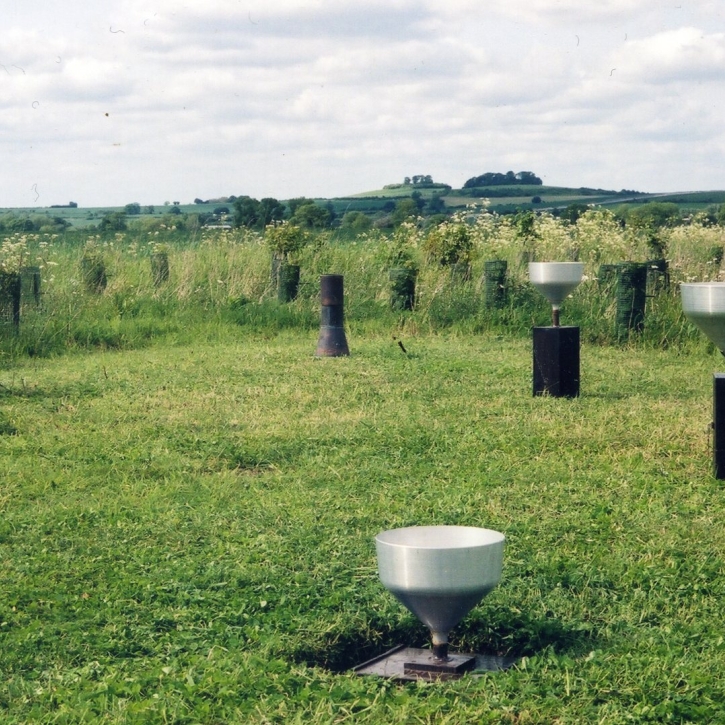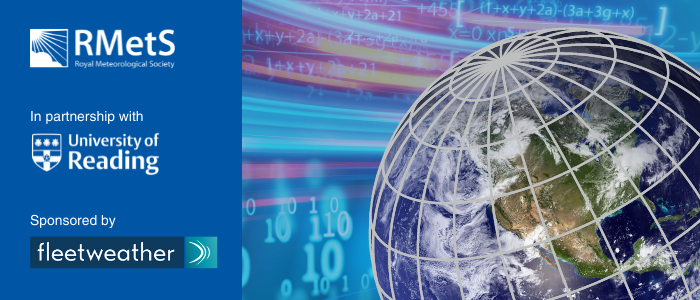

MASTERCLASS | Extracting Causal Information from Climate Data
LOCATION
SPEAKER: Dr Marlene Kretschmer, Research Scientist University of Reading
TITLE: "Correlation does not (necessarily) Imply Causation" – Extracting Causal Information from Climate Data
Continuing our online Meteorological Masterclasses in partnership with the University of Reading, we are pleased to announce a new Masterclass series in “Advances in weather and climate forecasting”.
During this series, three leading experts from the University of Reading discussed the latest scientific advances for understanding and predicting weather, climate and its impacts. Topics which were covered include data assimilation and machine learning; identification of causal pathways in atmospheric teleconnections; and modelling advances in resolution and parameterization for weather forecasting.
These masterclasses are intended to provide support for professionals working in Meteorology and Climate Science, and its operational applications who wish to remain up to date on recent scientific developments in the field.
Masterclasses ran weekly on Wednesday’s 16th, 23rd and 30th March 2022 from 3 pm to 4.30 pm (UTC), consisting of a presentation followed by the opportunity for questions and discussion with the speaker. Whilst the webinars are part of a series, attendance at all three events was not compulsory.
Predictions of regional extreme weather and climate events suffer from large uncertainties. This is further compounded by a limited causal understanding of the physical drivers of extremes, fundamentally limiting the interpretability of climate model forecasts. Yet, to justify taking critical actions in the light of uncertainty, explanations are crucial because they provide decision-makers with a level of plausibility.
Progress in weather and climate forecasting therefore strongly depends on an improved causal understanding of the climate system. Sources of predictability are expected in teleconnections, referring to a spatially distant forcing (e.g. enhanced tropical sea surface temperatures) which influence regional climate via coupling with the atmosphere. Several of such climate modes such as the El Niño–Southern Oscillation (ENSO), the Madden–Julian Oscillation (MJO) and the North Atlantic Oscillation (NAO) have been described. Typical research questions posed in this context are for instance: What are the dominant teleconnections leading to extreme precipitation in a particular region? How will these drivers change with ongoing global warming? How can we improve predictions of these extreme events?
To answer these types of questions, climate scientists analyse large data sets from observations and climate models, trying to extract causal information from the data. However, robustly estimating the effects of a teleconnection remains a challenging task due to the often simultaneous influences of multiple climate modes. For instance, quantifying the causal influence of the stratospheric polar vortex (SPV) on the NAO is difficult, as both the SPV and the NAO are known to be influenced by the MJO, and this influence is likely modulated by the phases of ENSO. Analyzing a teleconnection pathway in isolation, for example, using pairwise correlation, can therefore lead to wrong inferences about its causal effect.
Dr Marlene Kretschmer is a research scientist at UoR. Currently she holds an individual Marie Curie fellowship to apply causal inference methods to evaluate the representation of large-scale drivers of Mediterranean precipitation in climate models. She is an expert in using these novel statistical methods as well as other machine learning algorithms to identify and quantify causal pathways of teleconnections from climate data.
Geoff Saville joined Willis Towers Watson (WTW) in 2013, and works with the Willis Research Network stakeholders and academic partners to match business needs to the latest in scientific research, and derive tangible outputs for Willis Towers Watson to help advise its clients to advance their understanding of risk from weather and climate related hazards.
His background is in meteorology and climate science, having worked in forecasting for over a decade for the UK Met Office and Bermuda Weather Service, in all aspects of delivering forecast services from media broadcasting to delivering warnings and actionable guidance on extreme weather phenomena such as tropical cyclones and heavy rainfall leading to flooding.
He holds a BSc in Environmental Science from the University of East Anglia, and a Masters (with distinction) in Climate Change from University College London. He is also an active Fellow of the Royal Meteorological Society.
Matthew Nuss is from Kingston, New York and has a bachelor of science in Atmospheric Science from SUNY Albany. He has 15+ years of providing meteorological and oceanographic services, from marine forecasting and optimum ship routing to charter party performance claims. An accredited Meteorologist (RMet) and Fellow of the Royal Meteorological Society (FRMetS), he has been with Fleetweather since December 2005. Matthew is currently the Director of Marine Claims and Duty Director on the Atlantic Whales Watch watch.
How do we use the 'Weather' in 'Numerical Weather Prediction'? | 15:00-16:30 | 23rd March 2022
SPEAKER: Professor Peter Clark
Data Assimilation and Crowdsourced Observations in Numerical Weather Prediction | 15:00-16:30 | 30 March 2022
SPEAKER: Professor Sarah Dance
Sponsored by
SPEAKER: Dr Marlene Kretschmer, Research Scientist University of Reading
TITLE: "Correlation does not (necessarily) Imply Causation" – Extracting Causal Information from Climate Data
Continuing our online Meteorological Masterclasses in partnership with the University of Reading, we are pleased to announce a new Masterclass series in “Advances in weather and climate forecasting”.
During this series, three leading experts from the University of Reading discussed the latest scientific advances for understanding and predicting weather, climate and its impacts. Topics which were covered include data assimilation and machine learning; identification of causal pathways in atmospheric teleconnections; and modelling advances in resolution and parameterization for weather forecasting.
These masterclasses are intended to provide support for professionals working in Meteorology and Climate Science, and its operational applications who wish to remain up to date on recent scientific developments in the field.
Masterclasses ran weekly on Wednesday’s 16th, 23rd and 30th March 2022 from 3 pm to 4.30 pm (UTC), consisting of a presentation followed by the opportunity for questions and discussion with the speaker. Whilst the webinars are part of a series, attendance at all three events was not compulsory.
Predictions of regional extreme weather and climate events suffer from large uncertainties. This is further compounded by a limited causal understanding of the physical drivers of extremes, fundamentally limiting the interpretability of climate model forecasts. Yet, to justify taking critical actions in the light of uncertainty, explanations are crucial because they provide decision-makers with a level of plausibility.
Progress in weather and climate forecasting therefore strongly depends on an improved causal understanding of the climate system. Sources of predictability are expected in teleconnections, referring to a spatially distant forcing (e.g. enhanced tropical sea surface temperatures) which influence regional climate via coupling with the atmosphere. Several of such climate modes such as the El Niño–Southern Oscillation (ENSO), the Madden–Julian Oscillation (MJO) and the North Atlantic Oscillation (NAO) have been described. Typical research questions posed in this context are for instance: What are the dominant teleconnections leading to extreme precipitation in a particular region? How will these drivers change with ongoing global warming? How can we improve predictions of these extreme events?
To answer these types of questions, climate scientists analyse large data sets from observations and climate models, trying to extract causal information from the data. However, robustly estimating the effects of a teleconnection remains a challenging task due to the often simultaneous influences of multiple climate modes. For instance, quantifying the causal influence of the stratospheric polar vortex (SPV) on the NAO is difficult, as both the SPV and the NAO are known to be influenced by the MJO, and this influence is likely modulated by the phases of ENSO. Analyzing a teleconnection pathway in isolation, for example, using pairwise correlation, can therefore lead to wrong inferences about its causal effect.
Dr Marlene Kretschmer is a research scientist at UoR. Currently she holds an individual Marie Curie fellowship to apply causal inference methods to evaluate the representation of large-scale drivers of Mediterranean precipitation in climate models. She is an expert in using these novel statistical methods as well as other machine learning algorithms to identify and quantify causal pathways of teleconnections from climate data.
Geoff Saville joined Willis Towers Watson (WTW) in 2013, and works with the Willis Research Network stakeholders and academic partners to match business needs to the latest in scientific research, and derive tangible outputs for Willis Towers Watson to help advise its clients to advance their understanding of risk from weather and climate related hazards.
His background is in meteorology and climate science, having worked in forecasting for over a decade for the UK Met Office and Bermuda Weather Service, in all aspects of delivering forecast services from media broadcasting to delivering warnings and actionable guidance on extreme weather phenomena such as tropical cyclones and heavy rainfall leading to flooding.
He holds a BSc in Environmental Science from the University of East Anglia, and a Masters (with distinction) in Climate Change from University College London. He is also an active Fellow of the Royal Meteorological Society.
Matthew Nuss is from Kingston, New York and has a bachelor of science in Atmospheric Science from SUNY Albany. He has 15+ years of providing meteorological and oceanographic services, from marine forecasting and optimum ship routing to charter party performance claims. An accredited Meteorologist (RMet) and Fellow of the Royal Meteorological Society (FRMetS), he has been with Fleetweather since December 2005. Matthew is currently the Director of Marine Claims and Duty Director on the Atlantic Whales Watch watch.
How do we use the 'Weather' in 'Numerical Weather Prediction'? | 15:00-16:30 | 23rd March 2022
SPEAKER: Professor Peter Clark
Data Assimilation and Crowdsourced Observations in Numerical Weather Prediction | 15:00-16:30 | 30 March 2022
SPEAKER: Professor Sarah Dance



